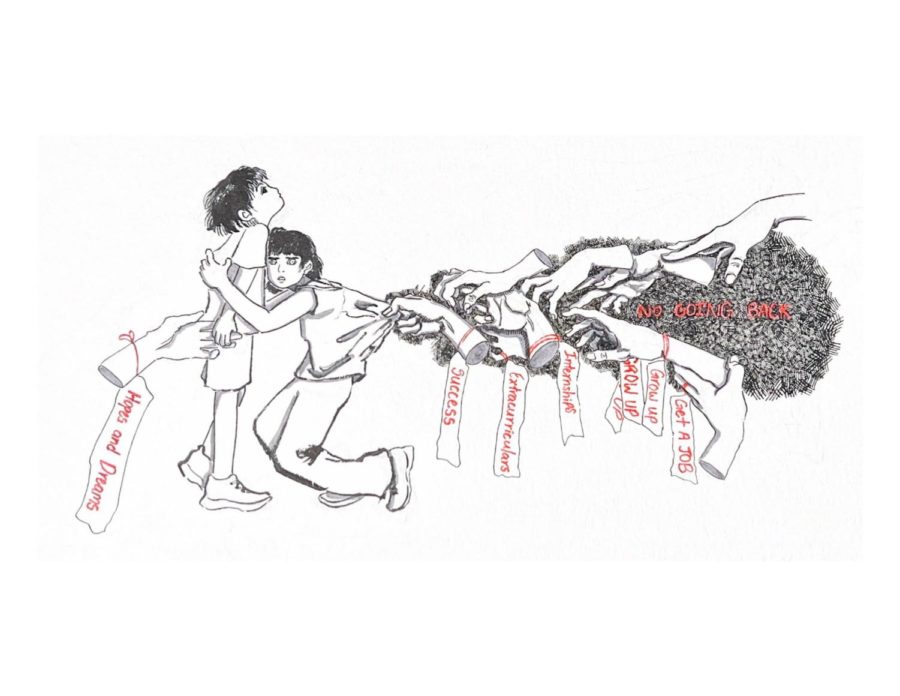We are a school of complainers. Not a day goes by without a criticism of at least one of the following: the weather, the amount of homework, the dining hall food, grades, money, the plot of a recent television episode, social life—and the super-meta complaining about the amount of complaining that goes on in this school.
Good.
My thoughts turned to this subject recently, upon spotting a post exhorting us to “check our ‘complaint privilege’” on “UChicago Secrets”: one entry in a history of many posts scattered throughout various Facebook groups that make similar observations about the school’s culture of complaining. True, a lot of complaining is simply unproductive—there’s not much that can be done to change the weather, no matter how much we grumble about it. However, an atmosphere where students feel free to express thoughts openly can make it easier for common problems to be identified. For example, a harsh complaint in a course evaluation amid a sea of glowing reviews doesn’t seem significant, but a common theme spanning many complaints signals much more.
One of the common objections to the level of complaining on campus is that some of the complaints are downright trivial. It’s fair to acknowledge that not all complaints are created equal. I think most will agree that someone suffering from the flu has more to complain about than someone whose favorite ice cream flavor isn’t available in the dining hall. However, since the relative importance of complaints is not always so clear-cut, I would caution against trying to prescribe guidelines about which complaints are or aren’t worthy of being voiced aloud. It may be tempting to trivialize complaints about something with which we have no personal experience. One may not fully understand an issue with somebody else’s job or classes, and so might fall into the trap of assuming that it can’t be as bad as an issue that one has seen up close.
More consequentially, a similar attitude is observed sometimes in public discourse. It can be quite frustrating to hear male pundits dismissing issues like women’s reproductive health, or for racial profiling to be treated as no big deal by a commentator who is clearly never going to be racially profiled. Therefore, in anticipation of the kinds of debates students will encounter in the future, students should be encouraged to speak out when an issue is personally significant to them, not just when they think that the issue will be important to everyone else. The burden will still be on the complainer to persuade others to make changes, but discussion shouldn’t be shut down prematurely.
Granted, hearing a lot of complaints can quickly become tiresome. But, through trial and error, students can also get a better sense of how to speak out in order to bring about change. Through learning how to tackle smaller issues, people can gain the experience useful for addressing bigger ones. We learn that complaints work most effectively when expressed in a civil manner and directed to an appropriate audience. And so we can evolve from “This organization sucks” or “This is a terrible class” to “I’d like greater transparency in decision-making” or “A different textbook ought to be assigned.”
As college students, most of us are in a relatively fortunate position. But it’s still possible to maintain a clear perspective on one’s own situation while still seeking out reasonable improvements. An atmosphere in which complaining is common can be annoying, but it can also be re-framed as an atmosphere promoting open expression. Now that most of us are technically adults, college marks the first time at which we have the opportunity to advocate on our own behalf. I think it’s worth the risk of having to listen to a bit of griping about the type of issues oft mocked as “First World Problems” in order to foster an environment in which people don’t feel disenfranchised.
Jane Huang is a fourth-year in the College majoring in Chemistry.








